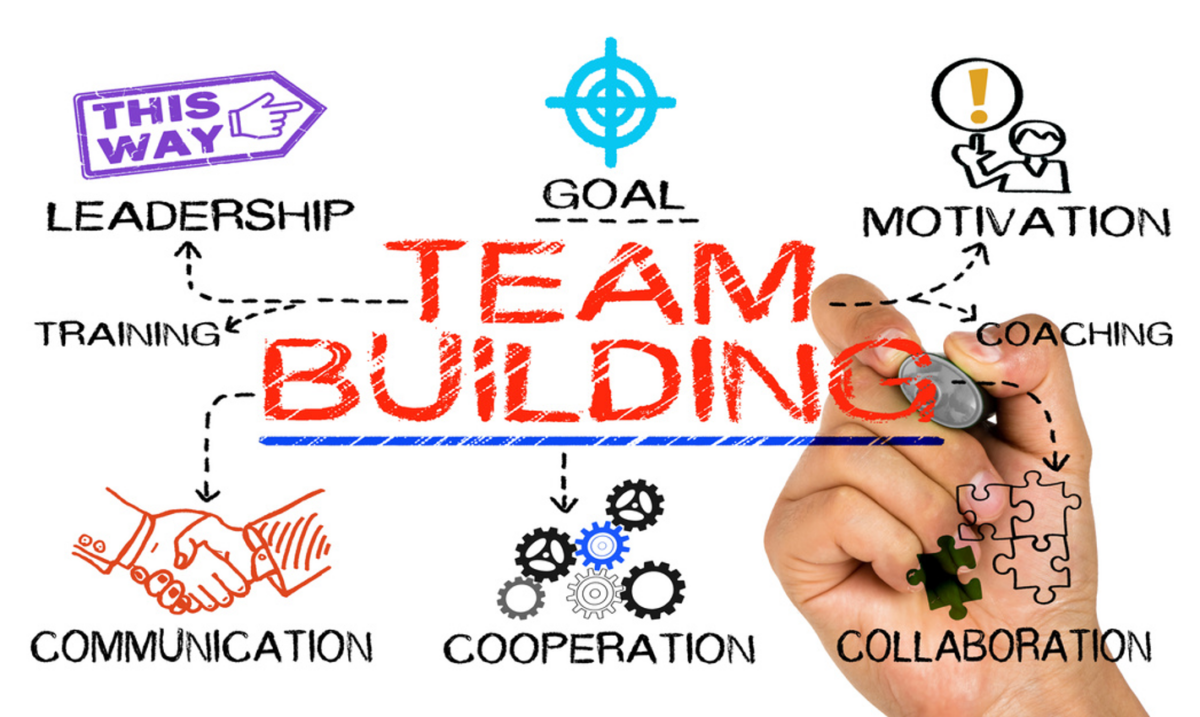Building High-Performance Teams: A Comprehensive Guide for Modern Businesses

Discover how to create and nurture high-performance teams with this comprehensive guide from AHG Management Services. Learn about effective communication, motivation, coaching, and more to boost your organisation's success.
As an HR consultant at AHG Management Services, I've had the privilege of working with numerous organisations to help them grow and develop their people-related activities. One of the most critical aspects of this work is building and nurturing high-performance teams. In this comprehensive guide, we'll explore the key elements that contribute to creating and maintaining such teams, drawing from our extensive experience and proven methodologies.
The Foundation: Effective Communication in the Workplace

Communication is the bedrock of any successful team. It's not just about exchanging information; it's about creating understanding, fostering collaboration, and driving results. Here are some key points to consider:
- Choose the right communication method: Depending on the situation, you may need to use face-to-face meetings, video calls, emails, or instant messaging. Select the method that best suits the content and urgency of your message.
- Timing is crucial: Ensure that you communicate at the right time. Too early, and your message might be forgotten; too late, and it could cause unnecessary stress or delays.
- Use appropriate language and tone: Adapt your communication style to your audience. What works for one team member might not work for another.
- Leverage technology: Use appropriate tools to facilitate communication, especially in remote or hybrid work environments.
- Practice active listening: This involves not just hearing the words, but understanding the complete message being conveyed.
Remember, effective communication is a two-way street. Encourage open dialogue within your team and create an environment where everyone feels comfortable sharing their ideas and concerns.
Building Professional Relationships in the Workplace
While we often spend more time with our colleagues than with our families, it's crucial to maintain professional boundaries. Here are some key points to keep in mind:

- Understand the business context: Remember that you're in a professional environment driven by business goals and objectives.
- Respect the employment contract: Both written and psychological contracts play a role in shaping workplace relationships.
- Focus on achieving organisational objectives: Build relationships that help you and your team accomplish professional and business goals.
- Maintain professionalism: Even if you develop friendships at work, always prioritise professional behaviour and integrity.
- Embrace diversity: Recognise that everyone is different and may approach tasks and relationships in various ways.
Overcoming Unconscious Bias in the Workplace
Unconscious biases can significantly impact team dynamics and decision-making processes. As leaders, it's our responsibility to recognise and mitigate these biases. Here are some common types of unconscious bias:
- Conformity Bias: The tendency to behave similarly to others in a group, even if it goes against one's personal beliefs.
- Confirmation Bias: The inclination to search for or interpret information in a way that confirms one's preexisting beliefs.
- Beauty Bias: The tendency to perceive attractive individuals as more competent, successful, and likeable.
- Halo Effect: The tendency to think everything about a person is good because you like that person.
- Similarity Bias: The tendency to connect with others who share similar interests, experiences, and backgrounds.
To overcome these biases:
- Regularly check your assumptions and question cultural stereotypes
- Slow down decision-making processes
- Seek diverse perspectives
- Practice empathy and put yourself in others' shoes
- Regularly review and reflect on your decisions and their outcomes
Motivating Your Team: Strategies for Success
Motivation is a crucial factor in team performance. Understanding the difference between intrinsic and extrinsic motivators can help you create a more engaged and productive team.

Intrinsic Motivators:
- Love for the work
- Mastery and learning
- Curiosity and fun
- Sense of belonging
- Meaning and purpose
- Autonomy and drive
Extrinsic Motivators:
- Rewards and salary
- Recognition
- Fear of failure
- Competition
- Bonuses
- Disciplinary measures
While both types of motivators have their place, research shows that intrinsic motivators often lead to more sustained engagement and satisfaction. As a leader, strive to create an environment that nurtures intrinsic motivation while using extrinsic motivators judiciously.
The Art of Delegation: Empowering Your Team
Effective delegation is a crucial skill for any leader. It not only helps in managing workload but also contributes to team members' growth and development. Here's a seven-step process for effective delegation:

- Identify the task: Clearly define what needs to be done.
- Choose the right person: Select someone with the appropriate skills and development needs.
- Explain the task: Provide clear instructions and expectations.
- Specify the level of authority: Clarify how much decision-making power the person has.
- Provide resources: Ensure the person has everything they need to complete the task.
- Agree on deadlines: Set clear timelines for completion and check-ins.
- Follow up: Monitor progress and provide feedback.
Remember, delegation is not about offloading work; it's about empowering your team members and helping them grow.
Coaching for Performance: Unleashing Your Team's Potential
Coaching is a powerful tool for developing your team members and improving overall performance. The 'CAN DO' coaching model provides a simple yet effective framework:

- Current: Assess the current situation and performance.
- Aims: Set clear, achievable goals.
- Numbers: Quantify the goals where possible.
- Date: Set deadlines for achieving the goals.
- Outcome: Define what success looks like.
Another popular coaching model is GROW:
- Goal: What do you want to achieve?
- Reality: What is the current situation?
- Options: What are the possible ways to achieve your goal?
- Will: What action will you take?
Effective coaching relies on three key skills:
- Listening: Practice active listening to truly understand your team members.
- Questioning: Use open-ended questions to encourage reflection and problem-solving.
- Challenging: Push your team members out of their comfort zones to promote growth.
Giving and Receiving Feedback: A Key to Continuous Improvement
Feedback is a crucial tool for continuous improvement. When giving feedback, use the BOOST model:

- Balanced: Look at both positive and negative aspects.
- Objective: Focus on actions and behaviours, not personality.
- Observed: Base feedback on first-hand observations.
- Specific: Provide detailed examples.
- Timely: Give feedback as soon as possible after the event.
When receiving feedback:
- Remain calm and listen without becoming defensive.
- Ask questions to fully understand the feedback.
- Thank the person for their input.
- Evaluate the feedback objectively.
- Use the feedback to improve your performance.
Conclusion: The Path to High-Performance Teams
Building high-performance teams is a complex but rewarding process. It requires effective communication, strong professional relationships, awareness of unconscious biases, skillful motivation, delegation, coaching, and a culture of constructive feedback.
At AHG Management Services, we're committed to helping organisations navigate these challenges and create work environments where teams can thrive. Remember, the journey to high performance is ongoing. It requires consistent effort, regular reflection, and a willingness to adapt and grow.
By focusing on these key areas, you can create a team that not only meets its goals but exceeds expectations, driving your organisation towards greater success. The investment you make in your people today will pay dividends in the future, creating a more engaged, productive, and satisfied workforce.
As you implement these strategies, remember that every team is unique. Be prepared to adapt these principles to your specific context and the individual needs of your team members. With patience, persistence, and a commitment to continuous improvement, you can build a high-performance team that drives your organisation forward.
About AHG Management Services:
AHG Management Services is a trusted HR consultancy specialising in providing bespoke people solutions to businesses across the UK. With over 30 years of combined experience in HR, Learning & Development, and Organisational Development, we offer a wealth of expertise to support organisations in achieving their goals.
Our services include:
- HR Consultancy: From developing HR strategies to managing complex employee relations issues, we provide comprehensive HR support tailored to your business needs.
- Learning & Development: We design and deliver engaging training programmes that enhance employee skills and drive organisational performance.
- Coaching & Mentoring: Our experienced coaches help leaders and employees unlock their potential and achieve personal and professional growth.
- Organisational Development: We work with you to create high-performing cultures that align with your business objectives.
At AHG Management Services, we believe that people are at the heart of every successful business. Our approach is built on understanding your unique challenges and aspirations, allowing us to deliver practical, value-added solutions that make a real difference to your organisation.
Whether you're a small start-up or a large corporation, we have the expertise and flexibility to support your HR needs. Contact us today to discover how we can help your business thrive through effective people management.



